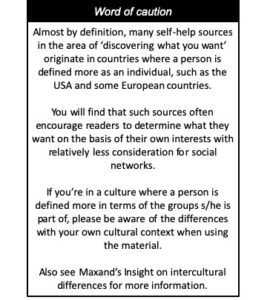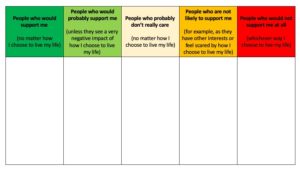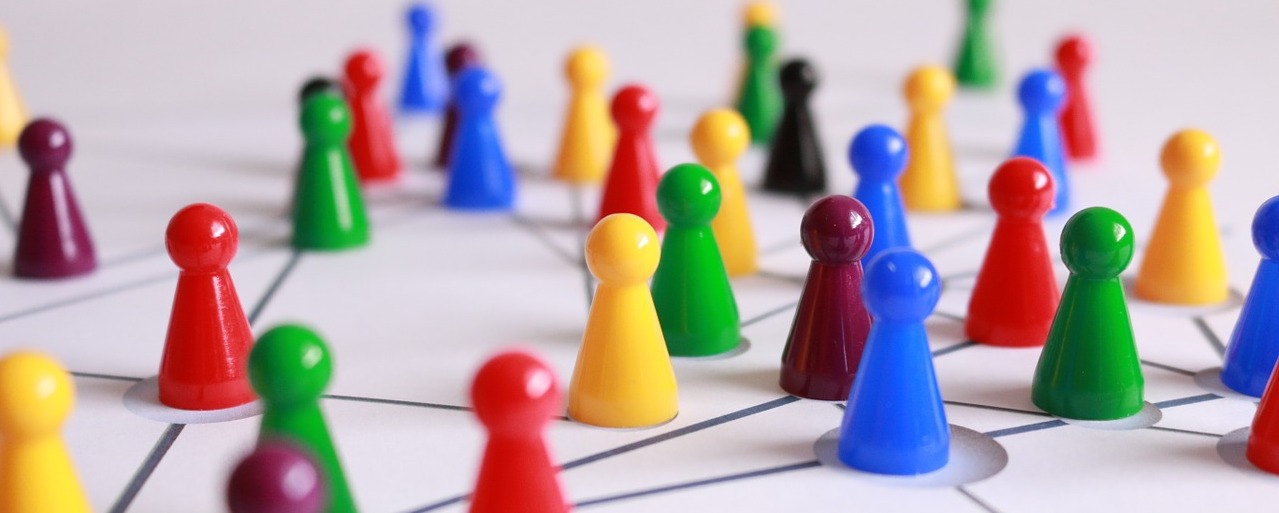Henriette was always there. No matter how people would shout at her in anger, cling to her in desperation, pressure her to agree to hopeful delusions. No matter how good or bad the news, she was there for a much-needed hug and words of encouragement. For practical support and gentle advice. Solid like a rock, unfaltering in the fiercest of storms. Following her around was a young psychology student, trying to test whether or not the way she supported people made any significant difference.
Henriette Ooms was a so-called ‘Mammacare Nurse’. One of the first in the country. A special nurse added to the team of general nursing staff caring for patients with breast cancer, a common type of cancer currently affecting around 1 in 7 women in the Netherlands¹.
Henriette’s job was to provide patients with emotional and practical support. To help them cope with the disease and the impact of treatment. The young psychology student was me, mentored by expert oncologists of the Alkmaar Medical Center and researchers of the Helen Dowling Institute for Biopsychosocial Medicine.
The pilot study took place in the mid 1990s. Since then, the Helen Dowling Institute – along with researchers from all over the world – has added to an increasing body of scientific evidence indicating that the effects of support like Henriette’s can indeed be significant. First of all, in terms of patient wellbeing and coping. But secondly, also in terms of ‘hard’ measures such as immune function, speed of recovery, time spent at the hospital and treatment effectiveness².
So yes, social support can make all the difference in challenging situations. But things often aren’t as clear-cut as in Henriette’s case. Her sole reason for being there was to provide relevant support. She was a very experienced nurse and excellent at what she did. As a patient, you’d know what to expect from her and when she’d be there and when not. You’d feel secure knowing you could contact her in case of emergencies. Henriette’s main interest was to do a good job and she wouldn’t leave you with any obligations towards her.
In the less controlled ‘real world’, people around you may also want to help you in challenging times. Yet, they may not be able or available to provide you with the support you need. Others may not necessarily mean you harm, but may have interests that conflict with yours. Still others may have reasons – consciously or unconsciously – to not support you at all. And then there are expectations and social conventions that may make you hesitant to accept someone’s support. For example, when you’d be obliged to do something in return that you wouldn’t necessarily want to do.
This month’s Insight focuses on the challenges in navigating the social network around you and securing social support while you’re discovering what you want. In addition, it offers practical tips and suggestions in dealing with some of the inherent paradoxes and dilemmas.
1. Why it’s sometimes not so easy
You might wonder why you’d spend any time thinking about the people around you while you’re trying to discover what YOU want. The thing is that we as individuals are influenced by the people around us just as much as they are influenced by us.
For example, many of your beliefs about yourself, your abilities and your environment have been influenced by other people (like your parents or partner). The path you’ll choose to go from here will also likely be affected by others who matter in one way or another. Similarly, some people around you are affected by the way you decide to live your life. This, in turn, may affect their willingness to help you or your own considerations in determining what you want.
There’s an important additional note to make here …
In some cultures – for example in the USA, the Netherlands (my home country), and other European countries – a person is mostly defined in terms of attributes that belong to that particular individual (e.g. that person’s job, skills, roles in life, etc.)³. In a culture like that, only a limited amount of interdependency is maintained between individuals. Individuals are allowed (and expected) to decide how to live their lives based primarily on their own wishes and needs and those of their immediate families.
You can imagine how, in such cultures, it’d be relatively easy to focus on your own personal wishes and pay less attention to what other people in the broader social network might want (I say ‘relatively’ as this can still be challenging enough).
 In other cultures – for example, in Indonesia (my current home) and many South and Central American countries – a greater interdependency between individuals is maintained. A person tends to be defined in terms of (the attributes of) the groups s/he belongs to. Individuals are often aware of their own needs and wishes, but tend to be led by their commitment to the groups of which they are part (family, social communities, professional networks, etc.). Things become challenging for individuals if they feel a particular group cannot return their loyalty in a meaningful way. Especially when they’re still expected to show their commitment. Conversely, things can become a bit complicated if an individual tries to lead his/her life without any commitment to a group that expects him/her to be a member.
In other cultures – for example, in Indonesia (my current home) and many South and Central American countries – a greater interdependency between individuals is maintained. A person tends to be defined in terms of (the attributes of) the groups s/he belongs to. Individuals are often aware of their own needs and wishes, but tend to be led by their commitment to the groups of which they are part (family, social communities, professional networks, etc.). Things become challenging for individuals if they feel a particular group cannot return their loyalty in a meaningful way. Especially when they’re still expected to show their commitment. Conversely, things can become a bit complicated if an individual tries to lead his/her life without any commitment to a group that expects him/her to be a member.
In such cultures, it’s usually not easy to lead your life primarily based on your own needs and wishes. Mostly because this is just not the way broader society ‘works’. Individual members are likely to find themselves challenged to somehow navigate between their own needs and wishes and those of the groups they belong to.
If you’d like to read a bit more about inter-cultural differences and/or examine specific cultural characteristics in your own country, have a look at Maxand’s Insight on cross-cultural differences.
In summary, discovering and determining what you want does not happen in a social vacuum. It’s important to recognise this. In the end, it’s all about striking a balance that works for you. Sometimes that’s easy. Sometimes that’s a little bit more complicated …
2. Roadmap to solving paradoxes and dilemmas
You’ll likely face some paradoxes and dilemmas in navigating your social network and securing support while discovering what you want. To be able to solve them, you’ll need to focus on two important elements:
a. Developing and maintaining awareness of what you’d want in your life based on your own needs and wishes as an individual
b. Developing and maintaining awareness of the people around you, their current roles in your life and the roles you’d want them to have
a. Awareness of what you’d want as an individual
The first element – discovering what you want as your individual self – constitutes one of the primary focus points of this website. Many of the previous Insight articles aim to help you develop awareness of what you might want based on your own needs and wishes (which are likely influenced by others, but experienced as your own). If you’re new to the site, allow me to refer you to some that you may find helpful.
-
- For tried and tested techniques:
(1) Burning through the fog in your mind
(2) Using images to discover what you want
- For tried and tested techniques:
These articles should provide some key pointers on the journey of discovering what you want. If you can’t find what you’re looking for, have a look at the other Insights or contact me in case of any inquiries.
b. Awareness of the social network around you
The second element focuses on being aware of the people around you and the roles they have in your life. Most people have a general notion of the their broader network and the people who somehow matter. I would like to encourage you to make that general notion more explicit, using the steps below.
Preparation:
1. Over the next few weeks, take a few minutes every day to examine who you’ve been in contact with (face-to-face, via phone, via social media, etc.). In addition, think of people you may not be in touch with regularly, but who somehow matter in your life.
2. List the people you’ve thought of in a table like the one below.
Note: remember that the people who support you are not necessarily the people who always agree with you!
Analysis:
=> Look at the people you’ve listed and ask yourself the following questions:
a. What kind of support are you currently receiving from which person in discovering what you want and/or taking steps towards that?
=> For example: emotional support, tangible assistance/aid, information, guidance, a sense of belonging, companionship, valuable feedback, boosting your self-esteem, stress-relief, etc.
b. Who inspires you and encourages you to discover your own way in life? Who discourages you (and provides a good test and check for risks)?
c. Who depends on you? And who do you depend on yourself? Who do you want to take into consideration while discovering and determining what you want?
d. Who gives you energy? Who leaves you drained of energy, or even hurts or manipulates you?
e. Who do you consider a good role model for yourself?
f. Who can you trust?
g. Who do you spend most time with? Who the least?
h. Who is in touch with who in your network?
=> Tip: You may find it helpful to make a network drawing, for example:
– using circles to indicate different individuals (different colours could indicate the person’s support orientation towards you, as in the table)
– using lines between the circles to indicate their connectedness (thicker lines could indicate stronger links; arrows could indicate the direction of the relationship; + or – could indicate the character of the relationship between people)
Take a step back:
=> What strikes you about your list in the table and your answers to the questions? What does this tell you?
3. Practical steps towards the future
Once you’ve done your first analysis of the social network around you, keep it with you as you go through your process of discovering and determining what you want.
As time progresses, consider the following. Do this regularly (say, once every 2 to 4 weeks) and make a point of taking concrete steps.
a. Can you find ways to spend more time with people who support you, who give you energy, who inspire you and encourage you to think about your own unique way of leading your life?
b. Can you find ways to spend less time with (or be less affected by) people who drain you of your energy, who bring you down, who hurt or manipulate you, while you’re discovering what you want and taking steps towards that?
c. Who can you rely on more in terms of support? For what kind of support?
d. Who can you trust to the extent that you can share your journey in discovering what you want? If there is such a person, consider sharing your journey with him/her to gain additional support.
e. Can you find ways to connect with other people – beyond the people you already know – who can help you discover what you want and/or take steps towards that (also see the article ‘Small and simple things to start with today‘).
f. At any point, do you need to adjust your table or your answers to the questions? Has there been anyone who you thought would be supportive, but who turned out not to be? Or conversely, is there anyone who unexpectedly proved to be a source of support?
g. Once the contours of what you want become visible, can you think of creative ways to perhaps manage any negative impact for people who depend on you or who you want to take into consideration?
h. And similarly, can you think of creative ways to mitigate the risks and impact for yourself as a result of what others in your network might do in response to your decisions?
As will probably be apparent, this is more like a process over time than a one-off task that can be settled once and for all. So be patient and give yourself ample space. Remember that every step you’re taking is another step …
Footnotes
1. The pilot study took place at the Alkmaar Medical Center (MCA), one of the larger regional hospitals in the northwest of the Netherlands. This project ran under the guidance of surgeon oncologist Aycke Smook of the MCA and researcher Adriaan Visser of the Helen Dowling Institute for Biopsychosocial Medicine (HDI). The current numbers are provided by the Dutch Cancer Society (www.kwf.nl). Note that men can also be affected by breast cancer, although their numbers are much smaller.
2. For studies published by the Helen Dowling Institute, have a look at the following links for respectively studies from 2014/2015 to present and up to 2014/2015:
– www.hdi.nl/publicaties/onderzoek/
– www.researchgate.net/institution/Helen_Dowling_Institute/publications
3. The research by Hofstede is taken as an example here, but others have done research along similar cultural dimensions. For a more in-depth view, have a look at the article around the value of cross-cultural differences.



